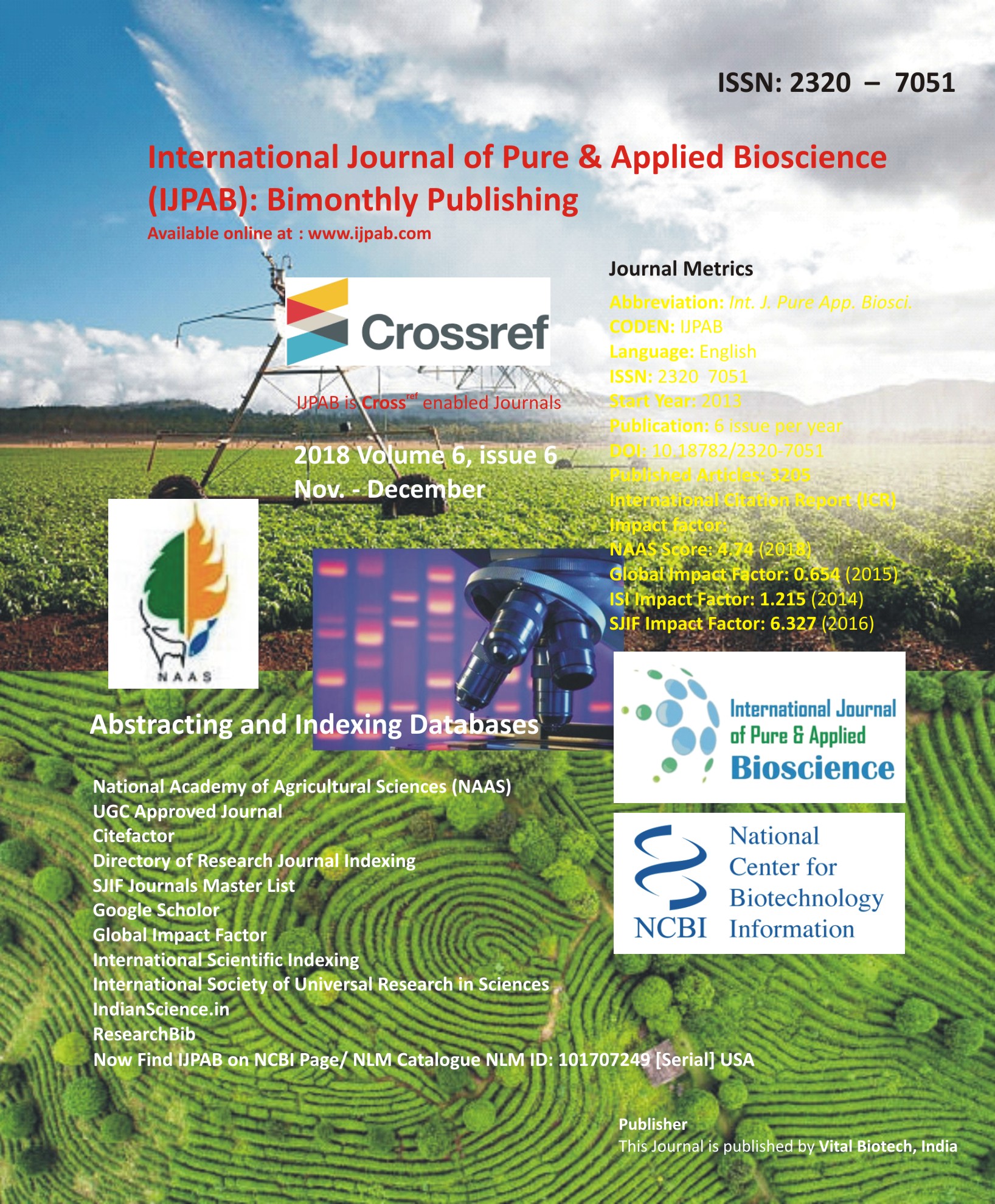
-
No. 772, Basant Vihar, Kota
Rajasthan-324009 India
-
Call Us On
+91 9784677044
-
Mail Us @
editor@ijpab.com
International Journal of Pure & Applied Bioscience (IJPAB)
Year : 2018, Volume : 6, Issue : 6
First page : (662) Last page : (668)
Article doi: : http://dx.doi.org/10.18782/2320-7051.6372
Lifestyle of the Yanadi Tribe and Food Habits in the Socio-Cultural and Economic Contexts
B. Vijayasree* and D. Sarada
Department of Human Development and Family Studies, Faculty of Home Science, Sri Padmavati Mahila Viswa Vidylayam, Tirupati A.P.
*Corresponding Author E-mail: kiran2adi@yahoo.co.in
Received: 27.03.2018 | Revised: 12.04.2018 | Accepted: 17.04.2018
ABSTRACT
Yanadi are indigenous tribes who are rodent eating community with nomadic way of life. The animistic nature of their religion, the production of fire by friction, the primitive hunting and fishing stage indicate that the Yanadis have not yet emerged from primitive stage of culture. About 53 million people (8% of the population) of India belong to various tribes in about 400 tribal communities. These groups live in different ecological geo climatic conditions throughout India ranging from the Sub-Himalayas to the islands in the Bay of Bengal and in the Arabian Sea. They also differ in distinct biological traits and cultural and socioeconomic background. Due to cultural patterns which vary from tribe to tribe, they are all at different stages of social, cultural, and economic development. The objective of present study is to have understanding of lifestyle of Yanadi tribes and their food habits in the socio culture and economic context. The study reveals that main occupation of maximum number of the respondents is fishing, cat hunting and scavengers. Mostly the houses are hut type with thatched roof. Toilet facilities and electricity facilities not available to more than half of the sample. Source of drinking water is bore water and most of them drink without purifying it. The study shows that the distance of residence from the available service is more than 5kms, from the study it can be understood that most of study population is scavengers and their residence is found far away from the center of the village. Only one fourth of the sample utilizes services like Anganwadi, PHC, Primary school, government hospital and PDS (Public Distribution System). The most important reason for not utilizing the service is marginalization.
Key words: Yanadi tribes, Government hospital, Primary school, Anganwadi
Full Text : PDF; Journal doi : http://dx.doi.org/10.18782
Cite this article: Vijayasree B. and Sarada D., Lifestyle of the Yanadi tribe and Food habits in the Socio-Cultural and Economic contexts, Int. J. Pure App. Biosci.6(6): 662-668 (2018). doi: http://dx.doi.org/10.18782/2320-7051.6372

